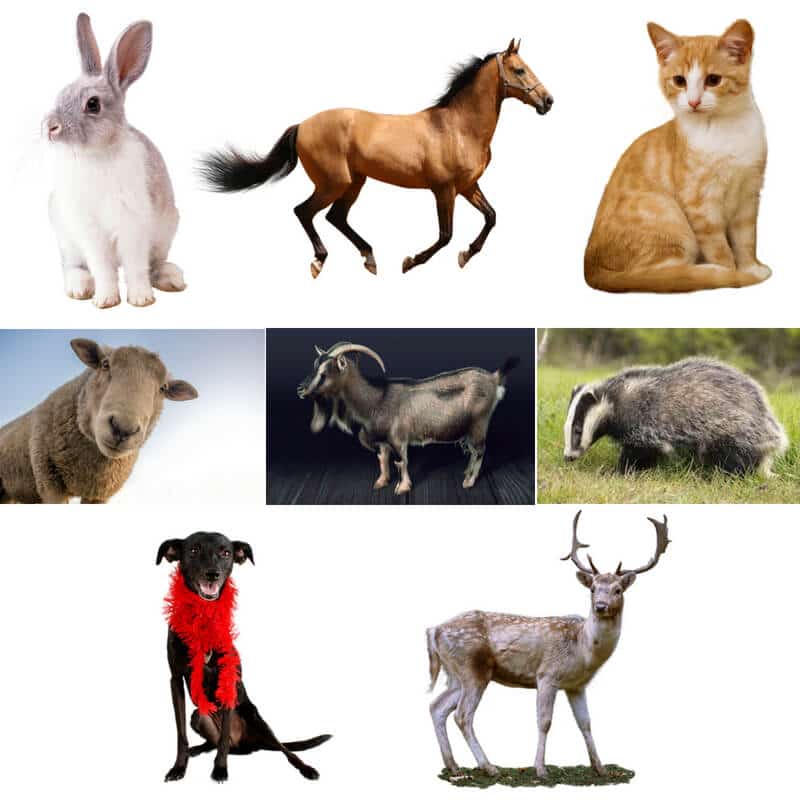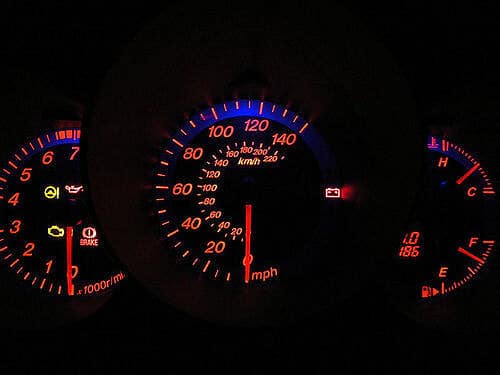1. Which of these is the main reason for keeping to the left lane unless over taking on dual and multiple carriageways?
A To Prevent Congestion
B To reduce the risk of dangerous driving
C To speed up traffic
D Accidents are less fatal in the left hand lane
The president of the AA Edmund Kings states that the main reason why middle lane hogging is wrong is that it causes congestion. The result of this sort of driving is that it could potentially waste a third of a motorway capacity. “Middle lane hoggers” can now face an on the spot fine of £100.
The rules on the UK Government website about motorway driving gives a clear instruction that “On a two-lane dual carriageway you should stay in the left-hand lane. Use the right-hand lane for overtaking or turning right. After overtaking, move back to the left-hand lane when it is safe to do so.”
On a three-lane dual carriageway, you may use the middle lane or the right-hand lane to overtake but return to the middle and then the left-hand lane when it is safe.”
2 . Is it illegal to stop on the hard shoulder of a motorway for a nap if you are feeling tired?
A Yes
B No
West Yorkshire police state that the hard shoulder should be used for emergencies only.
“It wouldn’t be acceptable to pull into the hard shoulder for a rest when tired. On long journeys a driver should plan their journey to incorporate rest breaks at service stations if needed.
The hard shoulder on a motorway is a dangerous place and should be used for emergencies only for example when a vehicle is breaking down.” Rules 247 of the highway code state the proper use of the hard shoulder for vehicle drivers. Please see rule 274 of the Highway Code: https://www.gov.uk/breakdowns-
3. Is it illegal to eat whilst you are driving?
A Yes
B No
Although it’s not an offence to eat whilst driving, you be prosecuted for failing to drive with due care and attention which is a offence that could lead to fines, prosecution, license bans and even a criminal prosecution if the offence causes an accident.
4. is it illegal to smoke whilst driving?
A Yes
B No
It’s not illegal to smoke whilst driving, but if the act of smoking is distracting the driver from their driving to the point where their driving may be considered dangerous they they may be prosecuted for failing to drive with due care and attention.
An amendment was recently passed to ban smoking in cars in England and Wales when there are child passengers, although this is not yet a criminal offence.
5. is it illegal for a driver to drink alcohol whilst driving?
A Yes
B No
Technically, it is not against the law to drink anything whilst driving, including alcohol. However, if you were caught drinking alcohol whilst driving it’s very likely that you will be pulled over.
West Yorkshire police adds: “There is no fool-proof way of drinking and staying under the limit. The amount of alcohol you would need to drink to be considered over the driving limit varies from person to person. It depends on the following factors:
- your weight
- your gender (men tend to process alcohol faster than women)
- your metabolism
- the type and amount you’re drinking
- your current stress levels
- whether you’ve eaten recently
- age (younger people tend to process alcohol more slowly
It is not advisable to even have one drink and drive as alcohol impairs your judgement and lessens your reflexes. The official amount of alcohol is 35 microgrammes per 100ml of breath reading, this cannot be translated into an exact amount of units as it depends on many factors, height and weight, time when last drink consumed etc, so the best advice is not to drink at all or order a taxi.
Even small amounts of alcohol can affect your ability to drive so the only safe advice is to avoid any alcohol if you are driving.”
6. Is it illegal for passengers in a moving car to drink alcohol?
A Yes
B No
Its is not illegal for passengers of a car to drink alcohol in the UK. In other countries, such as the United States, the laws are far more strict and “open container” laws restrict the possession of any open alcoholic beverage container, as well the consumption of any alcoholic beverage by anyone in a motor vehicle.
7. What should you do if a rabbit runs out in front of your car?
A Continue forward at the same speed
B Perform an emergency stop to avoid hitting the rabbit
C Change direction or drive around the rabbit to avoid hitting it
D Slow down and avoid animal only if there are no cars behind you
Although somewhat distressing to run over an animal – the required procedure is to react to obstructions in a way that will do the least damage to yourself, your passengers other road users, and pedestrians. If it is possible to avoid hitting an animal without harming anyone else then it is fine to do so. If an accident was caused because a driver braked or swerved to avoid an animal in the road, the fault of the accident would lie with that driver.
8. If you were to knock into and injure any of these animals whilst driving – which would you be required by law to inform the police about?
The only animals that you are required to report to the police are those that are defined in the Road Traffic Act 1998. This act covers Dogs, Horses, Goats, Cattle, Asses, Mules, Sheep & Pigs. This does not cover cats or any other animals whether they are domesticated or not.
9. Are you required to stop your car if you are involved in a road accident that was not caused by yourself?
A Yes
B No
Even if you are involved in a car accident that is not your fault, you are required by law to stop your vehicle if you are involved in an accident if:
-
- anyone is injured;
- another vehicle, or someone else’s property, is damaged;
- an animal in another vehicle or running across the road is injured;
- a bollard, street lamp or other item of street furniture is damaged.
10. If you are the first to witness a road accident are you required by law to stop?
A Yes
B No
You are not required by law to stop if you are not involved in an accident, but if witnesses of an accident may be contacted to provide a witness account or a witness statement. If there is a serious accident and you are the first to discover the accident, it is your moral obligation to call emergency services to those involved if they need it.
Green Flag have provided advice about the best course of action if you do come across a road accident.
11.Can a driver be prosecuted if they cause an accident as a result of sudden illness like a stroke or heart attack?
A Yes
B No
If there is a road accident as a result of a driver suddenly becoming ill, they will not be prosecuted for the way that they were driving. In some circumstanced however, they may be liable to pay compensation.
12. Using your horn. Please tick all of these that you believe to be true…
A Your car horn can be used to alert others of your presence
B Your car horn can be used to alert those around you of danger
C Your horn can be used at any time of the day in residential roads
D Your horn can be used at any time of the day on motorways
E Your horn can be used to alert those of a traffic light change
Your car horn should only be used to warn someone of danger and not for any other reason.
The law states that a horn should only be used when warning someone of danger, not to indicate your annoyance at a manner of driving. Your horn should not be sounded when stationary on a road at anytime, other than at times of danger due to another vehicle on or near the road.
Drivers are not allowed to use their horns on a moving vehicle on a restricted road (a road that has street lights and a 30mph limit) between the hours of 11.30pm & 7am.
13. Identify these car dashboard warning lights
Red dashboard lights generally warn drivers of a problem including issues with the battery, low engine oil or high engine temperature. It’s important as a driver that you familiarize youreself with the meqaning of all of the lights on your dashboard. If you ignore important warning lights you could end up causing serious and irreversible damage to essential parts of your car.
For more information about road laws and road safety advice, please see the following:
Ask the Police – West Yorkshire Police Website
Green Flag Driving Guide Accident Help


